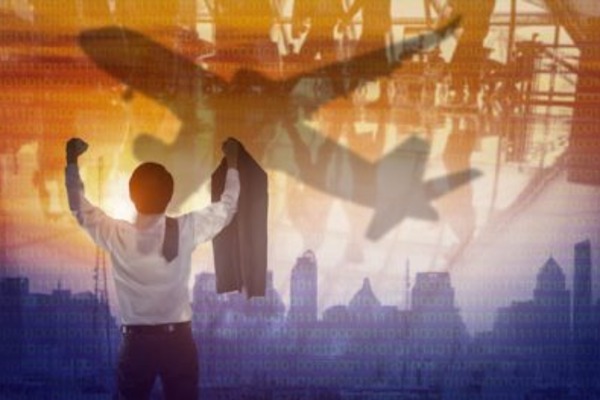Business Travel Recovery Will Be Uneven

In the first webinar in its GBTA Collaboratory 2020 series, the Global Business Travel Association (GBTA) welcomed futurist and trendcaster Dr. Shawn DuBravac, who shared his insights on the path to pandemic recovery for the global travel industry.
DuBravac joined GBTA Interim-Executive Director Dave Hilfman to discuss the current state of travel and what the post-pandemic recovery may look like for airlines, hospitality and ground travel.
DuBravac observed that: “What has been the quickest and steepest recession in U.S. history might also prove to be the shortest recession in history. The downturn has been ‘uneven’ and the recovery will be as well.”
He continued: “Different industries have been impacted at different rates and in diverse ways. For example, leisure travel and extended stay properties are bouncing back sooner than corporate travel.”
And DuBravac added: “As we move forward into recovery, I see the unevenness remaining, as some segments of the economy recover more quickly than others.”
Other takeaways from the session include:
- The rate of recovery depends on changes in the landscape of the pandemic, according to DuBravac. “Key drivers of recovery will include the release and dissemination of a COVID-19 vaccine and a steady decline in the rate of positive cases, both of which will breathe confidence into businesses and consumers.”
- Business stability will be aided by increased fiscal stimulus from government, more uniform and systematic quarantine rules, and the proposed liability waiver that would grant immunity against potentially fraudulent class-action lawsuits to businesses that follow public safety guidelines and take recommended precautions against coronavirus infection. “In previous downturns, we worried our industry wouldn’t recover to pre-recession levels, but it did,” said Hilfman. “Each of the steps listed above will help remove barriers for travellers.”
- The pandemic exerted unique pressures on the industry that can’t be solved simply by pricing; changing prices won’t stimulate the full return of pre-pandemic demand. Early industry data suggests travellers are showing preference for travel closer to home, suggesting drivable destinations might recover quickest. As broader uncertainties abate, there will be greater opportunity to influence demand with pricing and other creative solutions.
- As an ‘uneven’ downturn gives way to an ‘uneven’ recovery, travellers will return in an equally uneven fashion. They will bring with them pandemic-influenced preferences, some of which have yet to fully emerge. Domestic travel will return more quickly than international travel, suggesting areas of the industry that rely on international travel the most will feel a slower recovery.
And DuBravac also highlighted the importance of innovation and creativity. “Businesses that have paid attention to the shifting needs of travellers during this pandemic, and those that capitalize on emerging opportunities to offer new and innovative solutions will be the businesses that not only survive the downturn, but thrive in the recovery,” said DuBravac.
For more on future webinars, go to www.gbta.org .


